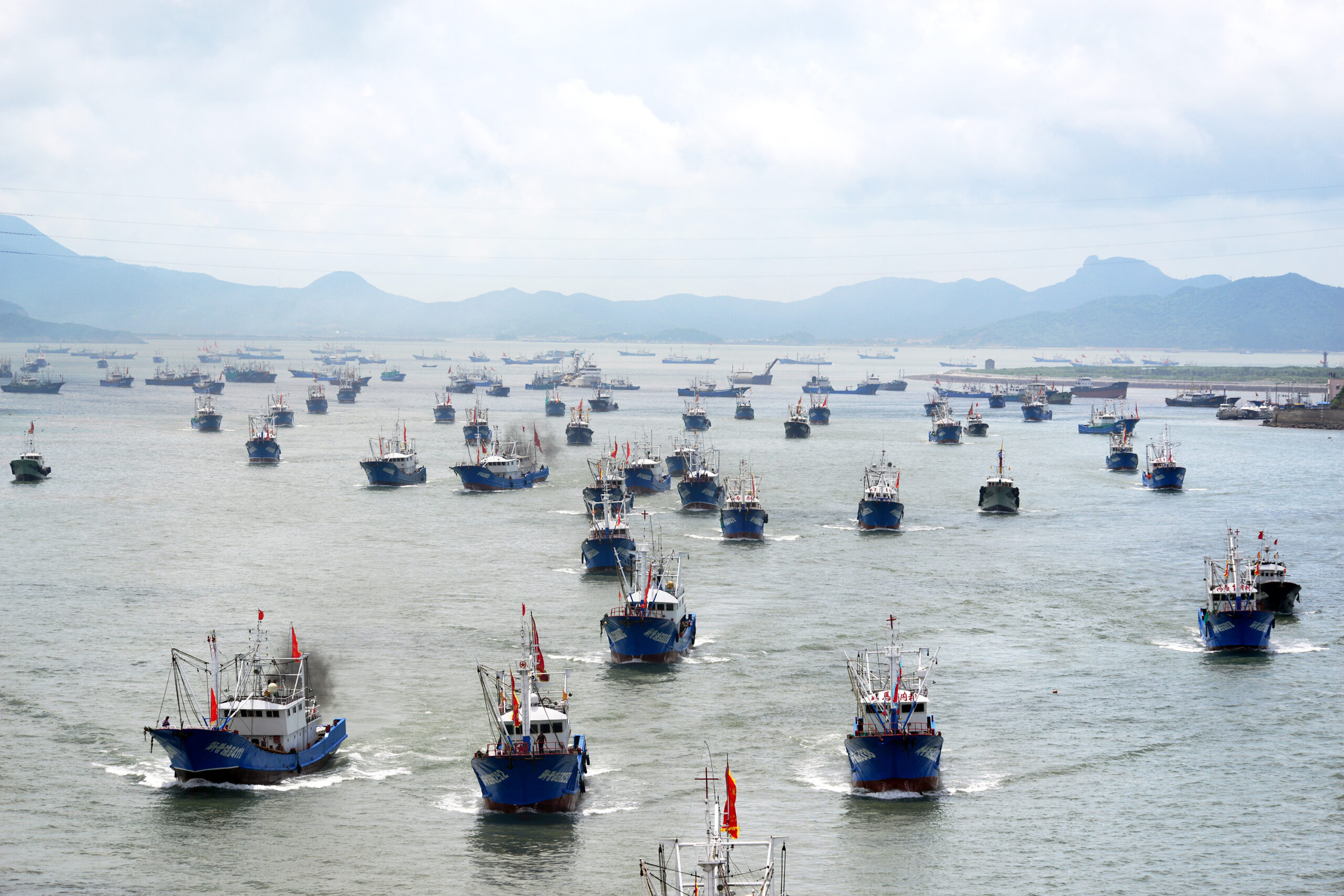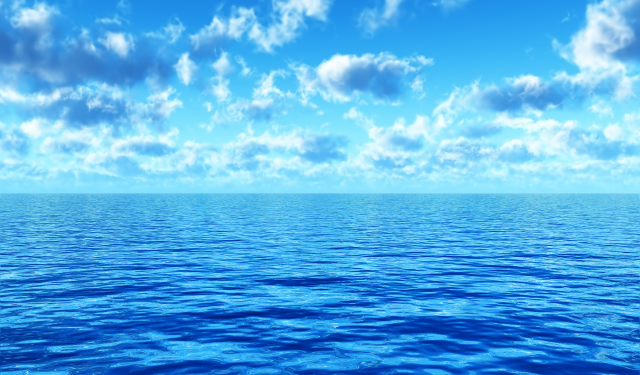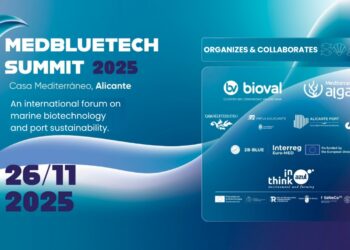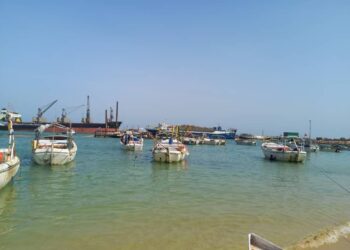A global “Blue Compact” is urgently needed to invest in and protect our oceans – An UNCTAD report highlights the potential of the oceans for developing countries and charts a new course for the sustainable use of marine resources.
The oceans offer vast opportunities for developing countries to build more innovative and robust economies.
But climate change, pollution and overfishing threaten these opportunities and the livelihoods of the approximately 3 billion people who depend on the ocean for food and income.
UNCTAD’s Trade and Environment Review 2023, published on 8 May, takes stock of the global ocean economy – estimated to be worth between $3 and $6 trillion. It analyses how human activity and crises have affected different ocean sectors, such as fisheries, seafood, shipping and coastal tourism.
The report, presented at the third UN Trade Forum, calls for a global “Blue Deal” to sustainably use our oceans, which are home to 80% of all life forms. It builds on the recommendations of the Fourth UN Forum on Oceans and the Second UN Conference on Oceans, held in 2022.
“The ocean economy offers great opportunities. We need to strike the right balance between benefiting from the oceans and protecting its resources,”
said UNCTAD Deputy Secretary-General Pedro Manuel Moreno.
Investing in new sustainable opportunities
A global “Blue Deal” would increase investment in emerging sustainable sectors that could benefit developing countries. The report highlights two promising sectors: seaweed farming and plastic substitutes.
The global algae market has more than tripled in 20 years, from $4.5 billion in 2000 to $16.5 billion in 2020.
Algae do not need fresh water or fertiliser to grow. It can be grown in many developing countries for food, cosmetics and biofuels, and can be an alternative to plastic, 11 million tonnes of which are dumped into the oceans every year.
In addition to algae, nature is full of many other sustainable materials that could be used to make environmentally friendly versions of the straws, food packaging and other plastic products we use every day.
The list includes materials that many developing countries have in abundance, such as bamboo, coconut shells, banana trees and agricultural waste. These countries also know how to use these materials thanks to their traditional and cultural knowledge.
By 2020, global trade in plastic substitutes will be worth about $388 billion, only a third of the amount traded in fossil fuel-based plastics. The potential for growth is therefore enormous.
The report calls on governments and businesses to increase funding for research and development of similar emerging sustainable sectors in the ocean economy.
It calls on companies to invest in developing countries to build up their technology, skills and production capacity so that they can take advantage of new opportunities in the oceans.

Promoting export diversification
Investing in emerging ocean sectors could help developing countries diversify their ocean exports.
The value of global exports of ocean goods, such as seafood and port equipment, and services, such as shipping and coastal tourism, has been estimated at $1.3 trillion in 2020.
The COVID-19 crisis revealed the potential and resilience of some sectors and the extreme vulnerability of others. In general, exports of maritime goods, which fell by 3.2%, fared better than services, which collapsed by 59% in 2020.
The decline in services income has affected many coastal communities in developing countries, which often depend on sectors such as tourism. Diversification of exports and maritime activities is essential to build economic resilience to future crises.
According to the report, governments should integrate the objective of promoting a diversified and sustainable ocean economy into post-crisis strategies and climate mitigation and adaptation efforts.
Protecting fish stocks and marine biodiversity
It is estimated that $35 billion is spent on public subsidies to fisheries activities worldwide.
A significant proportion – around $20 billion a year – could contribute to overfishing by building the capacity of the fishing industry through, for example, fuel subsidies or financial incentives to buy larger boats.
With 34% of the world’s fish stocks below biologically sustainable levels, the report calls on countries to urgently ratify the World Trade Organisation (WTO) agreement on fisheries subsidies, adopted on 17 June 2022.
The agreement, which is a major step forward in the fight against harmful subsidies, prohibits support for illegal, unreported and unregulated fishing and fishing of overexploited stocks, and ends subsidies for unregulated high seas fishing. It will enter into force when two-thirds of the 164 WTO members have deposited their ‘instruments of acceptance’.
Similarly, the report calls on governments to adopt and ratify the Agreement on Marine Biodiversity beyond National Jurisdiction of 4 March 2023. Better known as the ‘high seas treaty’, this agreement would create tools for the fair and equitable sharing of benefits from marine genetic resources and establish internationally protected areas in our oceans.
A new direction
The sustainable development goal on life under water (SDG 14) is the least funded of all the goals.
Between 2013 and 2018, only 1.6% of total official development assistance – some US$2.9 billion per year – was devoted to the ocean economy.
This falls far short of what is needed to address the ocean crisis.
Recent estimates suggest that, for example, $175 billion per year will be the minimum needed to meet MDG 14 by 2030, especially given the impact of VOC-19 and other recent setbacks.
They also show that an investment of $2.8 trillion today in four sustainable ocean solutions – mangrove conservation and restoration, decarbonisation of international shipping, sustainable ocean food production and offshore wind production – would yield net benefits of $15.5 trillion by 2050.
Without a global ‘Blue Deal’, these benefits and the goals of SDG 14 will be much harder to achieve.
“The time has come to change course by investing more in building a sustainable ocean economy,” said Mr Moreno.
A global “Blue Compact” is urgently needed to invest in and protect our oceans







